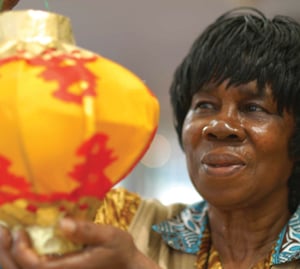Hotspot
Kathryn Deane issues a call for more creative, unpatronising work with older people.

When I first started in community music in the 1980s, much of the work was focused on adults. Now, almost all the work is directed to the youth market. Youth activities in general, and youth music in particular, get funding much more easily than work with adults. In a country where there are more pensioners than under-16s, and soon more people over 40 than under it, that’s simply not sustainable. We need more opportunities to work with adults. We need creative, unpatronising, participatory activities with older people. This is a call that we have been making for some years now. Angela Dennis, who runs community choirs and vocal groups, tells me “I knew that my learners did progress, but not in the way or time scale that the college dictated.” Cheryl Blake, who runs Silver Song Club sessions, found that there isn’t much provision for older people in London boroughs, and even where she found work the projects were often one-offs. The problem starts at national policy level. For example, the Department for Communities and Local Government’s 2006 report ‘A Sure Start to Later Life’ described how active participation helps older people work through social isolation and depression – yet music does not feature on its map of 19 participatory activities.
However, there are signs that things may be changing. March’s White Paper ‘The Learning Revolution’, recognises that “people participate for enjoyment and are driven by their desire for personal fulfilment,” not necessarily to gain a qualification. The Baring Foundation, one of our more thoughtful funders, is to devote its arts funding in 2010 to work with older people. Even Arts Council England, London has a (just-closed) older people fund. The door is not ajar, but it is less firmly bolted than it has been in recent years.
Join the Discussion
You must be logged in to post a comment.